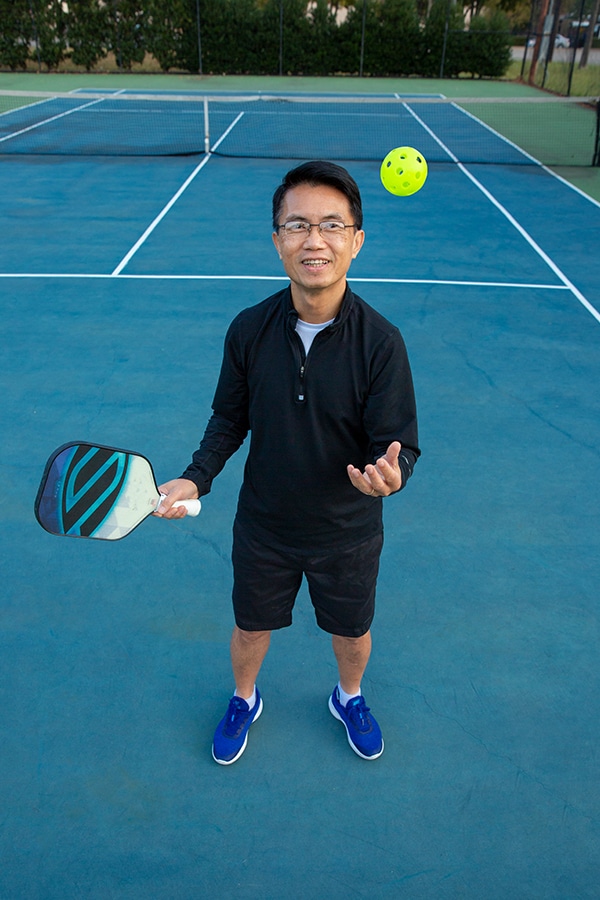The last day of 2018 was nearly Ott Siluangkhot’s last day alive. On Dec. 31, Ott took a quick water break after playing one set of tennis.
“I collapsed when I bent down to get a bottle of water,” the 53-year-old life insurance salesman recalls.
His tennis partner immediately started CPR, and it worked.
“God was on my side and watching over me,” Ott says.
Ott regained consciousness to find dozens of members of his tennis club standing over him, crying tears of joy. An ambulance rushed Ott to Methodist Richardson Medical Center. Upon arrival, John George, MD, a cardiologist on the medical staff at Methodist Richardson, was there to meet him.
Acting fast
Dr. George determined Ott had the most serious type of heart attack, one where one or more coronary arteries becomes completely blocked.
“Ott arrived in critical condition. If the brain loses oxygen for more than 5 minutes, brain death is certain, and regardless of whether you open and fix an artery, the patient will not recover,” Dr. George says.
Blood flow to Ott’s two main coronary arteries was blocked by more than 90%. A third artery had a 75% blockage. He required three separate procedures to place three stents in his heart. The small mesh tubes now hold Ott’s narrowed arteries open, allowing adequate blood to flow to the heart.
“Ott recovered well and came back electively a few weeks later to have the other two arteries opened,” Dr. George says. “He had very minimal damage on follow-up testing.”
Ott spent about a week and a half having stent procedures performed.
“The entire staff at Methodist Richardson was wonderful,” Ott says. “They know what they’re doing and took good care of me. I received personal, individualized care.”

“God was on my side and watching over me.” — Ott Siluangkhot
The best outcome
Ott says his heart attack came without warning. He didn’t have any of the common heart attack symptoms, such as tightness in the chest, dizziness, or shortness of breath.
“I’d had a normal physical and bloodwork in October before my heart attack,” he says. “That’s the reason it was so mind-boggling. My blood pressure was a little high, but I was taking medicine for it.”
“Had bystanders not known CPR, or had it not been started immediately, EMS would have nothing to stabilize,” Dr. George says. “In Ott’s case, as soon as he collapsed his resuscitation started immediately, making it possible to save his life.”
Since his major health scare, Ott has made drastic changes to his diet, eliminating fried foods, sugar, and coffee. He eats more plant-based meals and seafood to help keep his cholesterol in check. He sees Dr. George every three months and takes medication to control his cholesterol and prevent future heart problems.
Today, Ott enjoys traveling with his wife and their adult daughters, Catherine and Cassidy. They enjoyed an Alaskan cruise over the summer, and Ott is back to playing tennis in his free time.
“I play at a more relaxed pace now, not to the extreme,” he says. “I don’t push myself as hard.”

